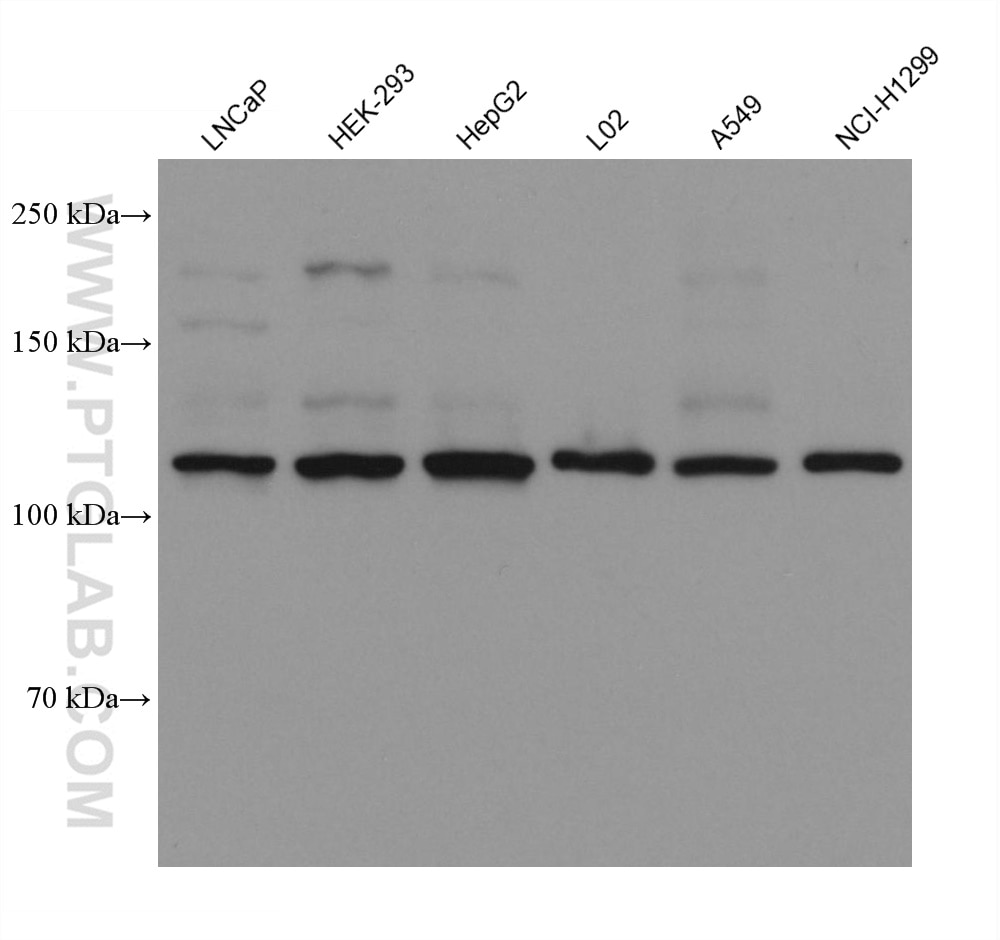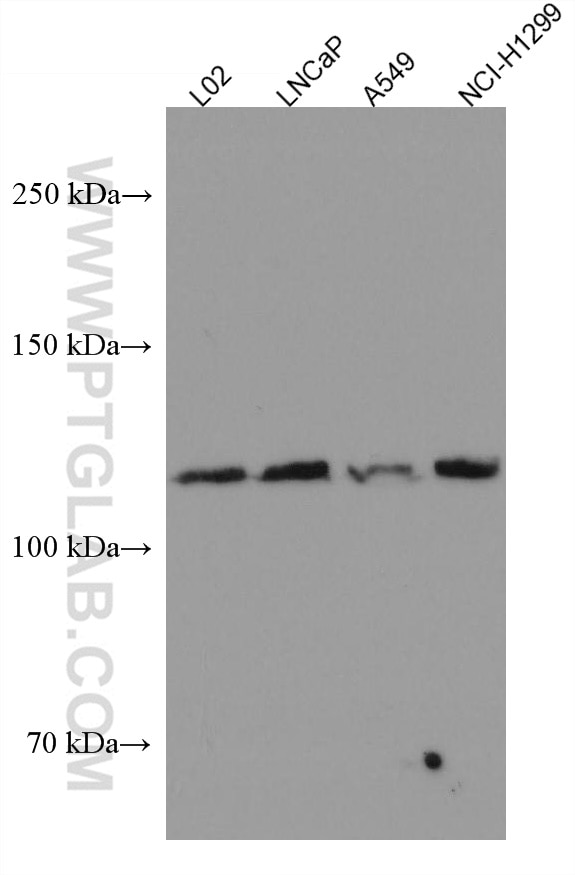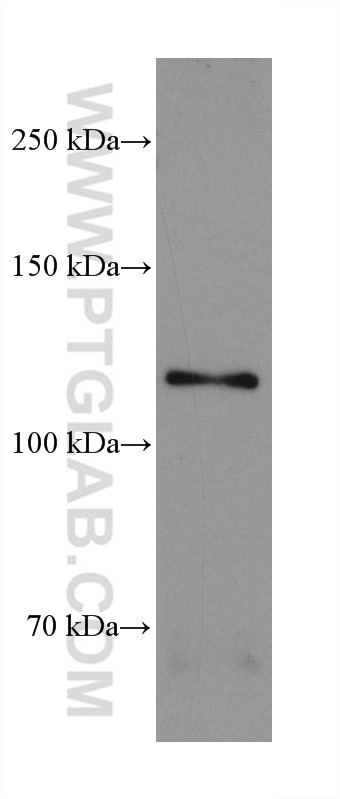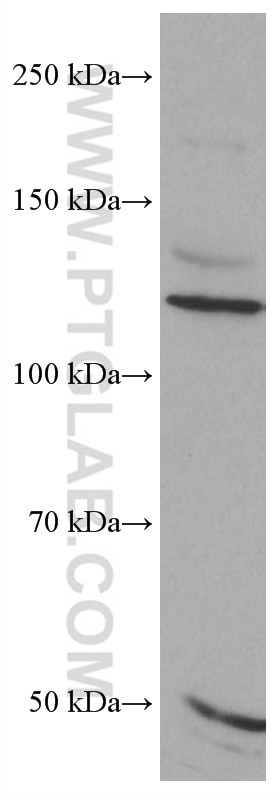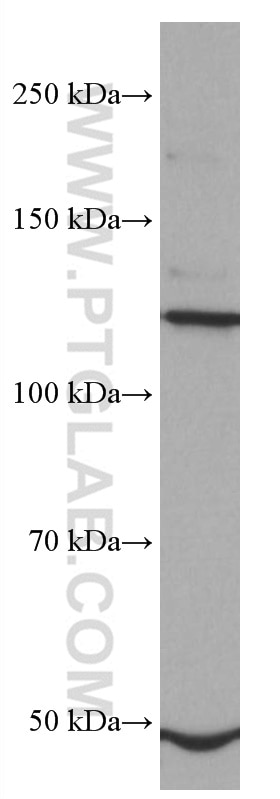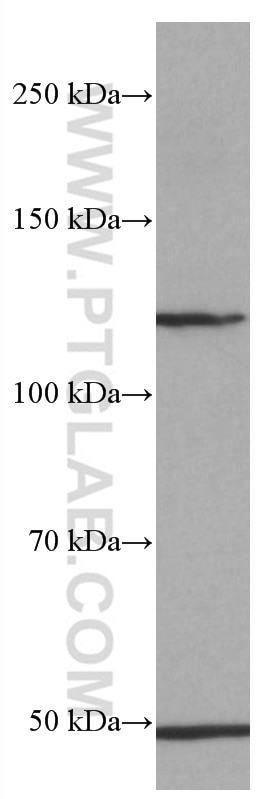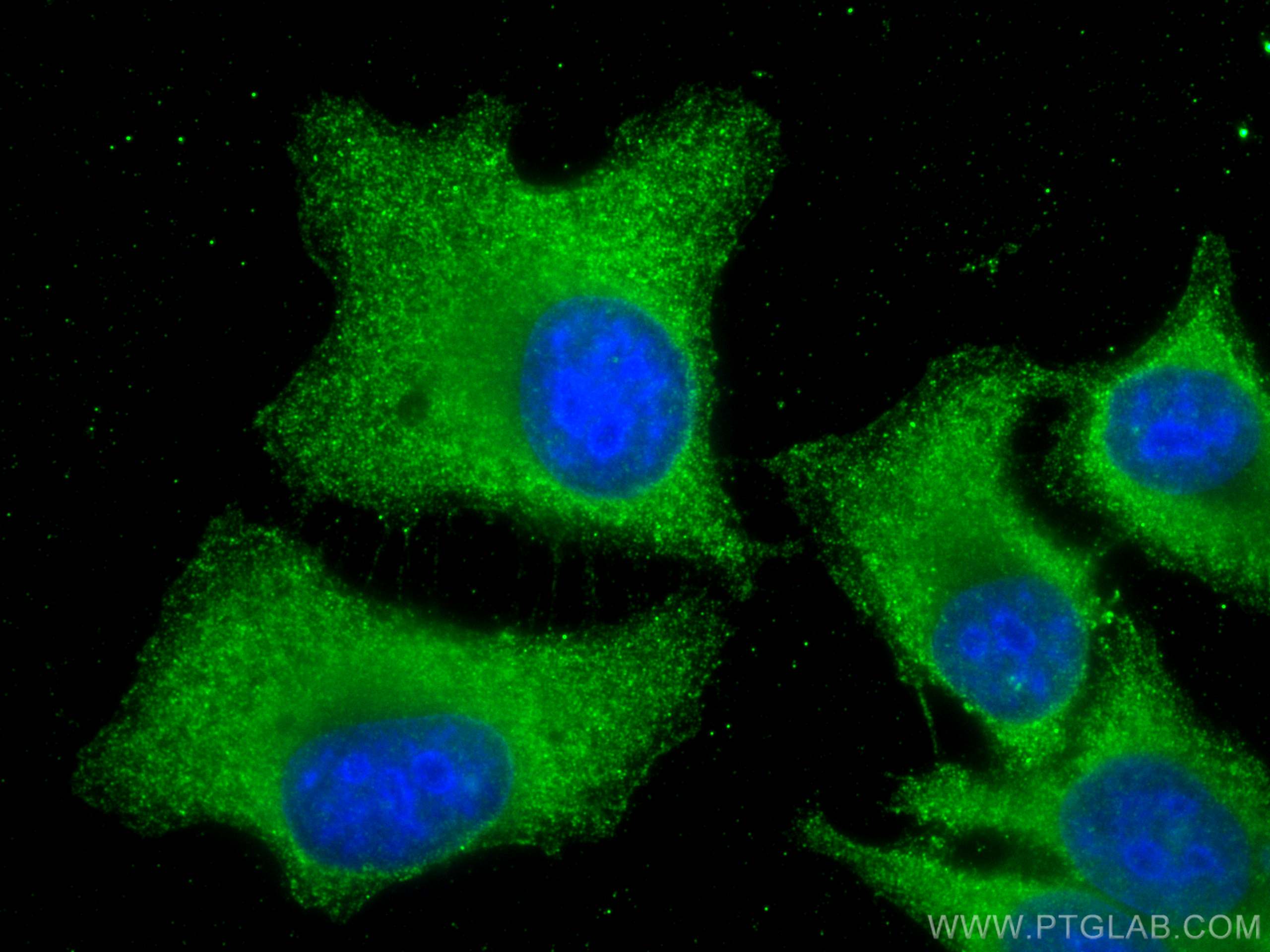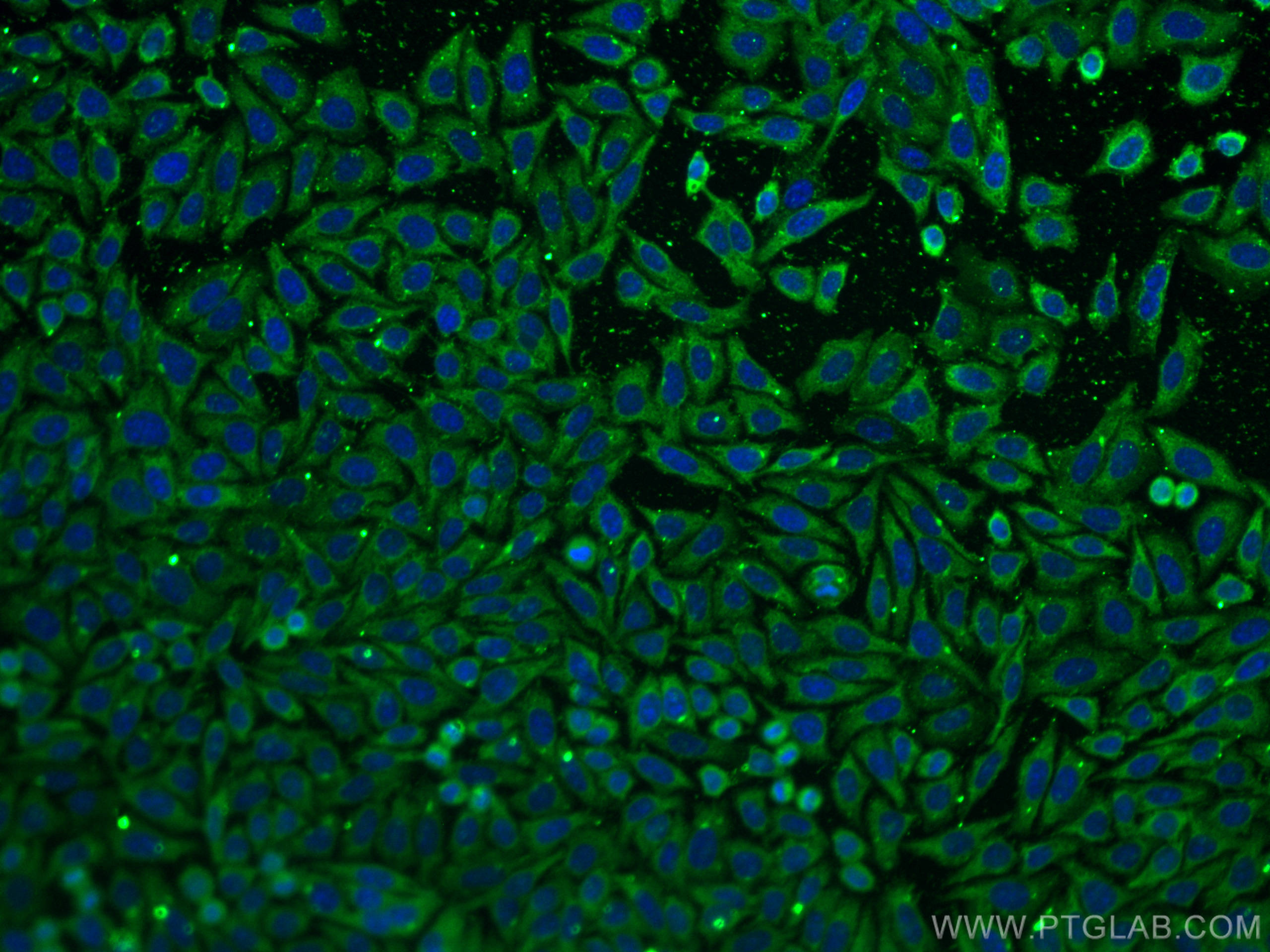Validation Data Gallery
Tested Applications
| Positive WB detected in | LNCaP cells, L02 cells, L-929 cells, HeLa cells, HEK-293 cells, HepG2 cells, A549 cells, NCI-H1299 cells |
| Positive IF/ICC detected in | HepG2 cells |
Recommended dilution
| Application | Dilution |
|---|---|
| Western Blot (WB) | WB : 1:5000-1:50000 |
| Immunofluorescence (IF)/ICC | IF/ICC : 1:200-1:800 |
| It is recommended that this reagent should be titrated in each testing system to obtain optimal results. | |
| Sample-dependent, Check data in validation data gallery. | |
Published Applications
| KD/KO | See 2 publications below |
| WB | See 8 publications below |
| IHC | See 1 publications below |
| IF | See 2 publications below |
Product Information
66954-1-Ig targets FGFR3 in WB, IHC, IF/ICC, ELISA applications and shows reactivity with human samples.
| Tested Reactivity | human |
| Cited Reactivity | human, mouse |
| Host / Isotype | Mouse / IgG1 |
| Class | Monoclonal |
| Type | Antibody |
| Immunogen | FGFR3 fusion protein Ag26290 相同性解析による交差性が予測される生物種 |
| Full Name | fibroblast growth factor receptor 3 |
| Calculated molecular weight | 87 kDa |
| Observed molecular weight | 125-135 kDa |
| GenBank accession number | NM_000142 |
| Gene Symbol | FGFR3 |
| Gene ID (NCBI) | 2261 |
| RRID | AB_2882277 |
| Conjugate | Unconjugated |
| Form | Liquid |
| Purification Method | Protein G purification |
| Storage Buffer | PBS with 0.02% sodium azide and 50% glycerol , pH 7.3 |
| Storage Conditions | Store at -20°C. Stable for one year after shipment. Aliquoting is unnecessary for -20oC storage. |
Background Information
Fibroblast growth factors (FGFs) are polypeptide growth factors involved in a variety of activities including mitogenesis, angiogenesis, and wound healing (PMID: 1847508). The human FGF receptor family, a subfamily of receptor tyrosine kinases (RTKs), comprises of four family members-FGFR1, FGFR2, FGFR3, and FGFR4 (PMID: 23900974). Each receptor contains an extracellular domain with either two or three immunoglobulin-like domains, a transmembrane domain, and a cytoplasmic tyrosine kinase domain. FGFR3 binds acidic and basic fibroblast GH and plays a role in bone development and maintenance. Mutations in the FGFR3 gene lead to craniosynostosis and multiple types of skeletal dysplasia. Due to frequent mutations in certain cancers, the FGFR3 gene has also been associated with tumor progression.
Protocols
| Product Specific Protocols | |
|---|---|
| WB protocol for FGFR3 antibody 66954-1-Ig | Download protocol |
| IF protocol for FGFR3 antibody 66954-1-Ig | Download protocol |
| Standard Protocols | |
|---|---|
| Click here to view our Standard Protocols |
Publications
| Species | Application | Title |
|---|---|---|
Ann Rheum Dis FGFR3 deficiency enhances CXCL12-dependent chemotaxis of macrophages via upregulating CXCR7 and aggravates joint destruction in mice.
| ||
Cells Determination of WWOX Function in Modulating Cellular Pathways Activated by AP-2α and AP-2γ Transcription Factors in Bladder Cancer. | ||
J Exp Clin Cancer Res HDAC7 promotes NSCLC proliferation and metastasis via stabilization by deubiquitinase USP10 and activation of β-catenin-FGF18 pathway. | ||
J Exp Clin Cancer Res Dysregulation and prometastatic function of glycosyltransferase C1GALT1 modulated by cHP1BP3/ miR-1-3p axis in bladder cancer. | ||
Tissue Eng Part A The UC-MSCbFGF/scaffold system accelerates the healing of the uterine full-thickness injury |
